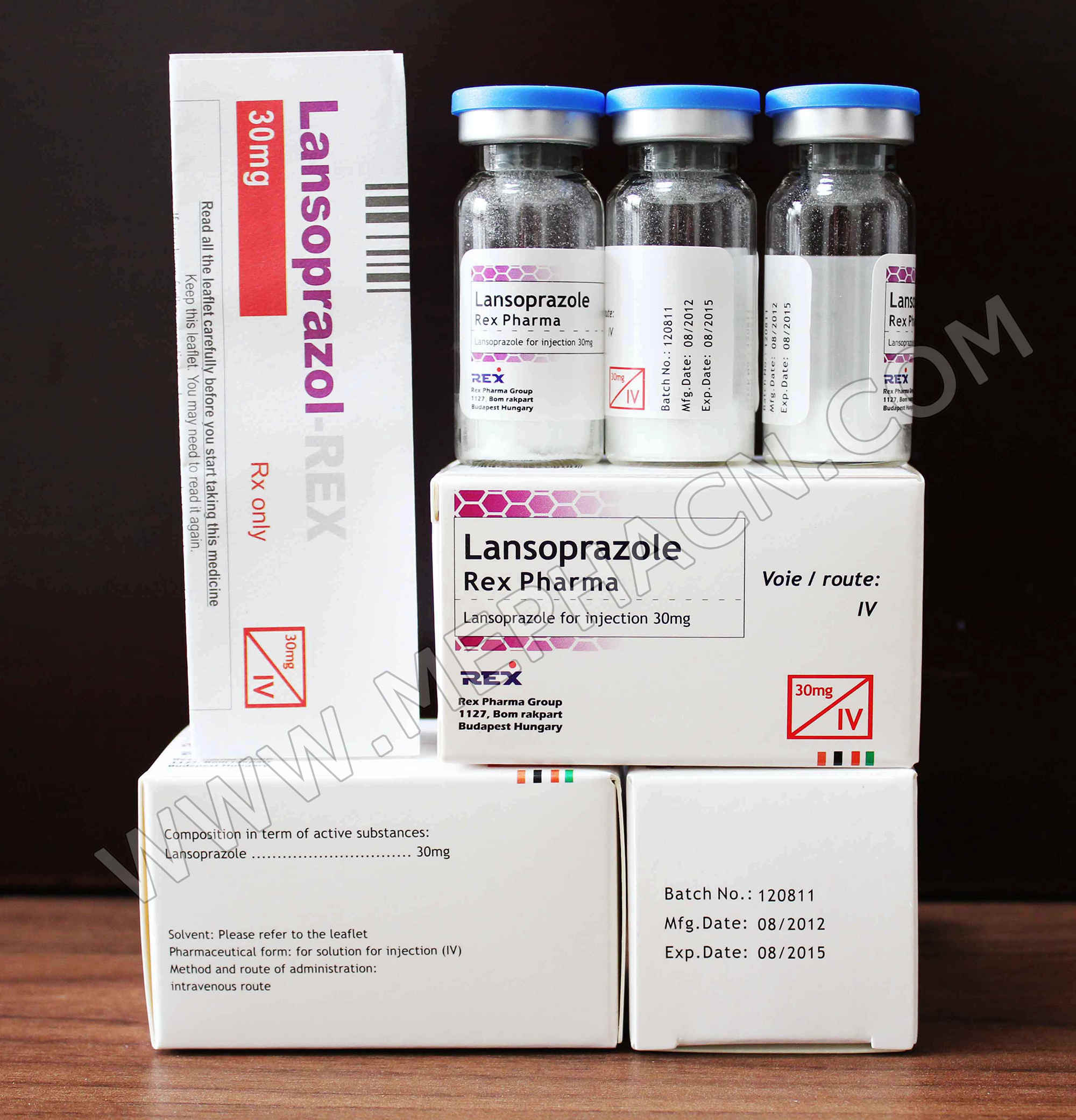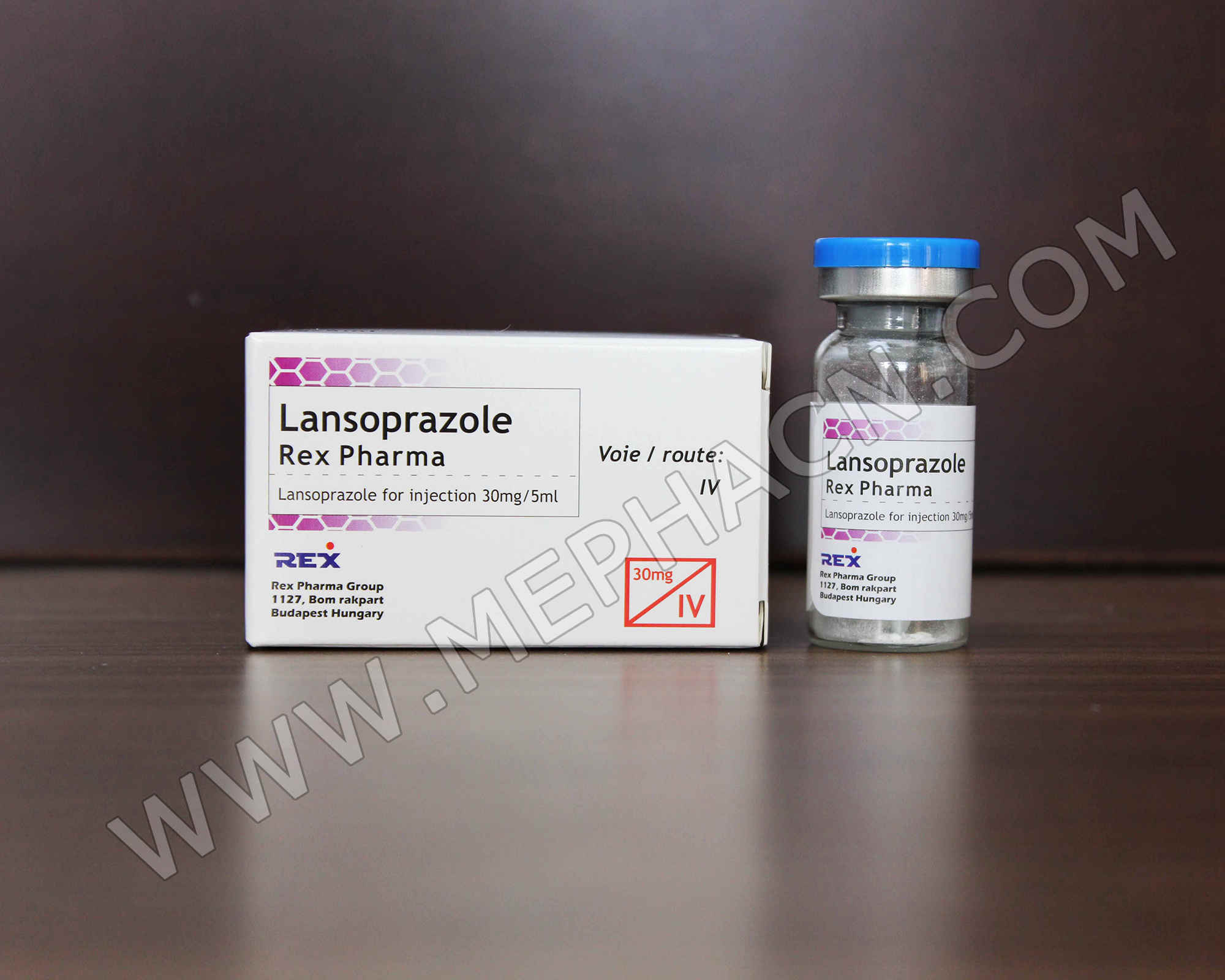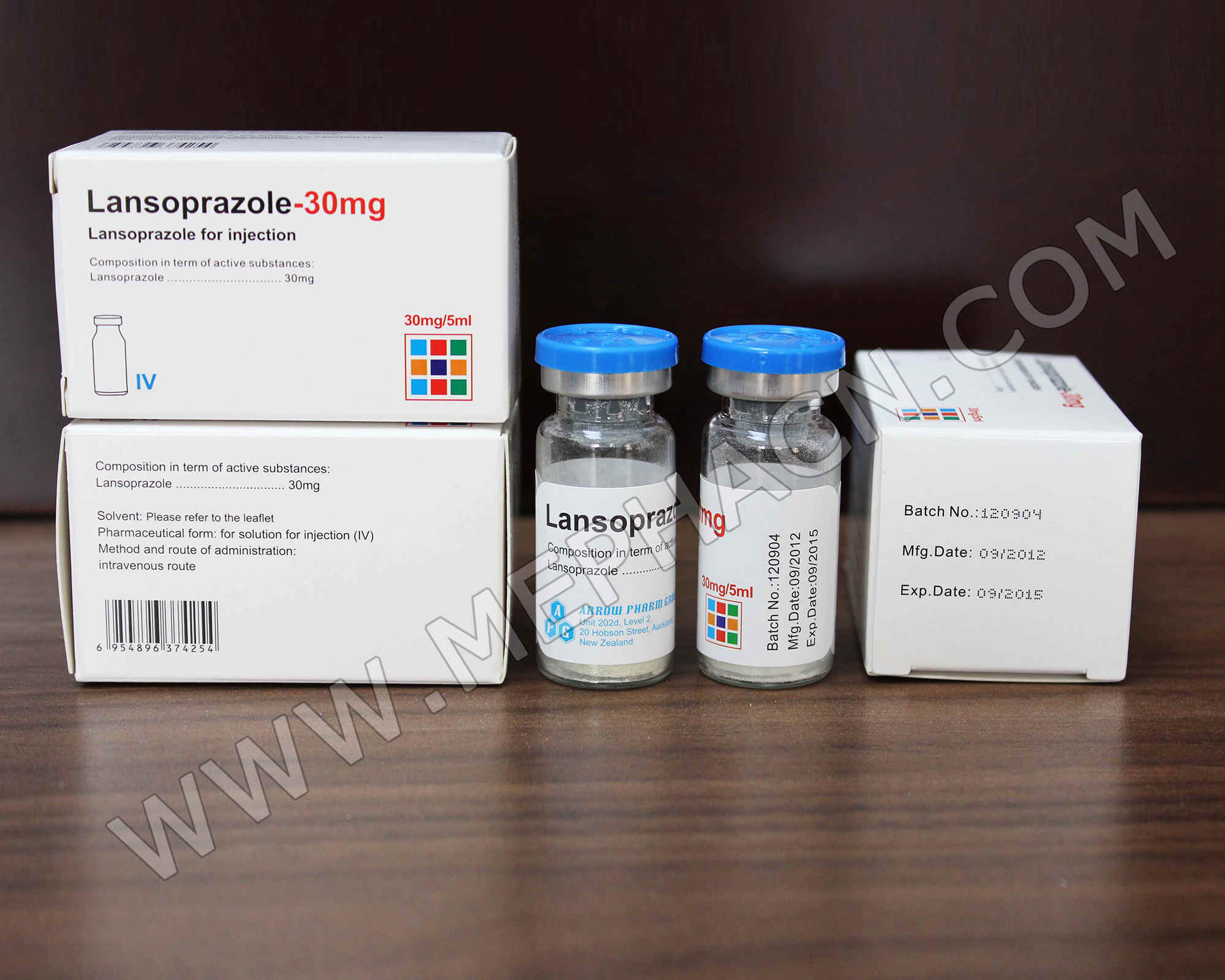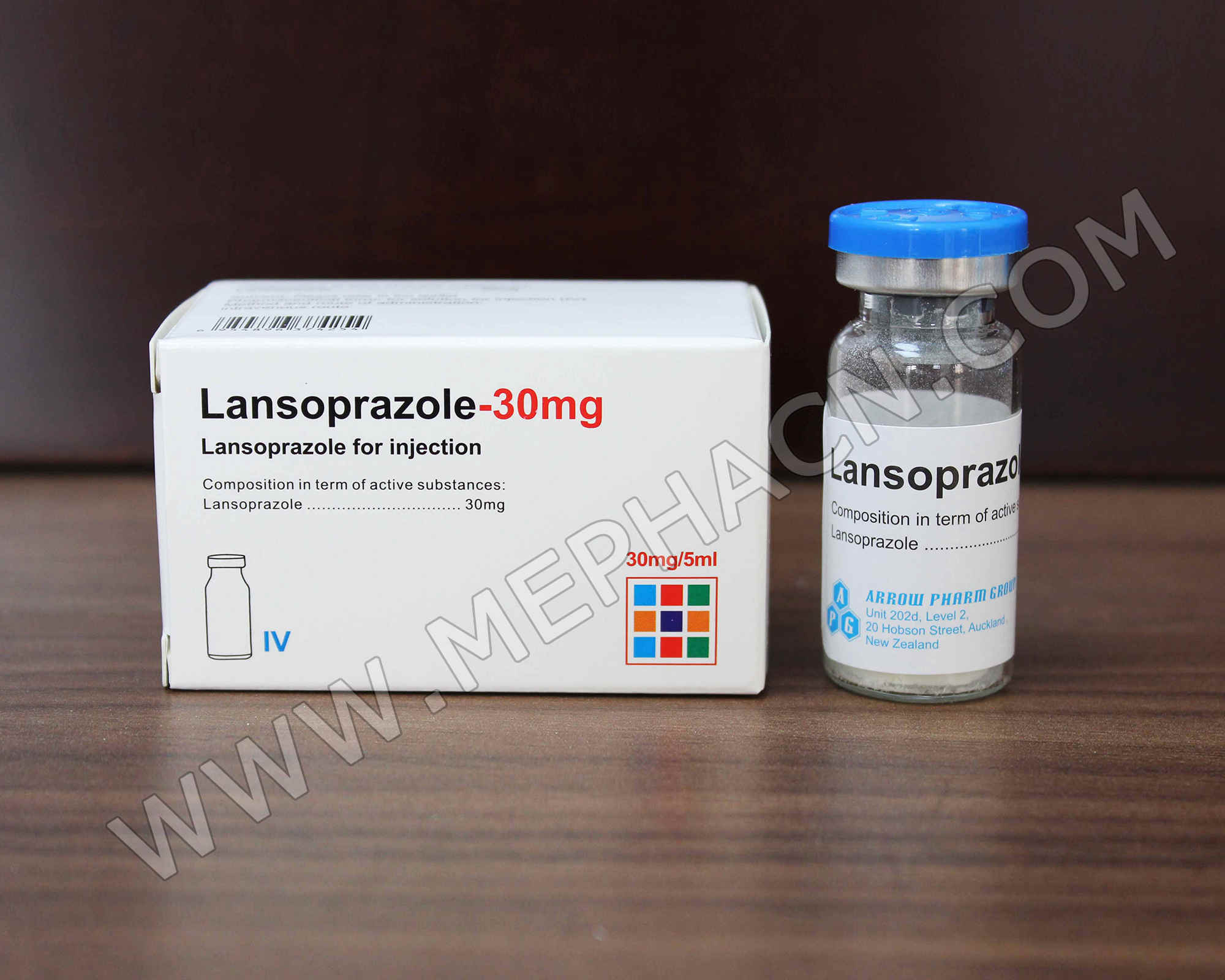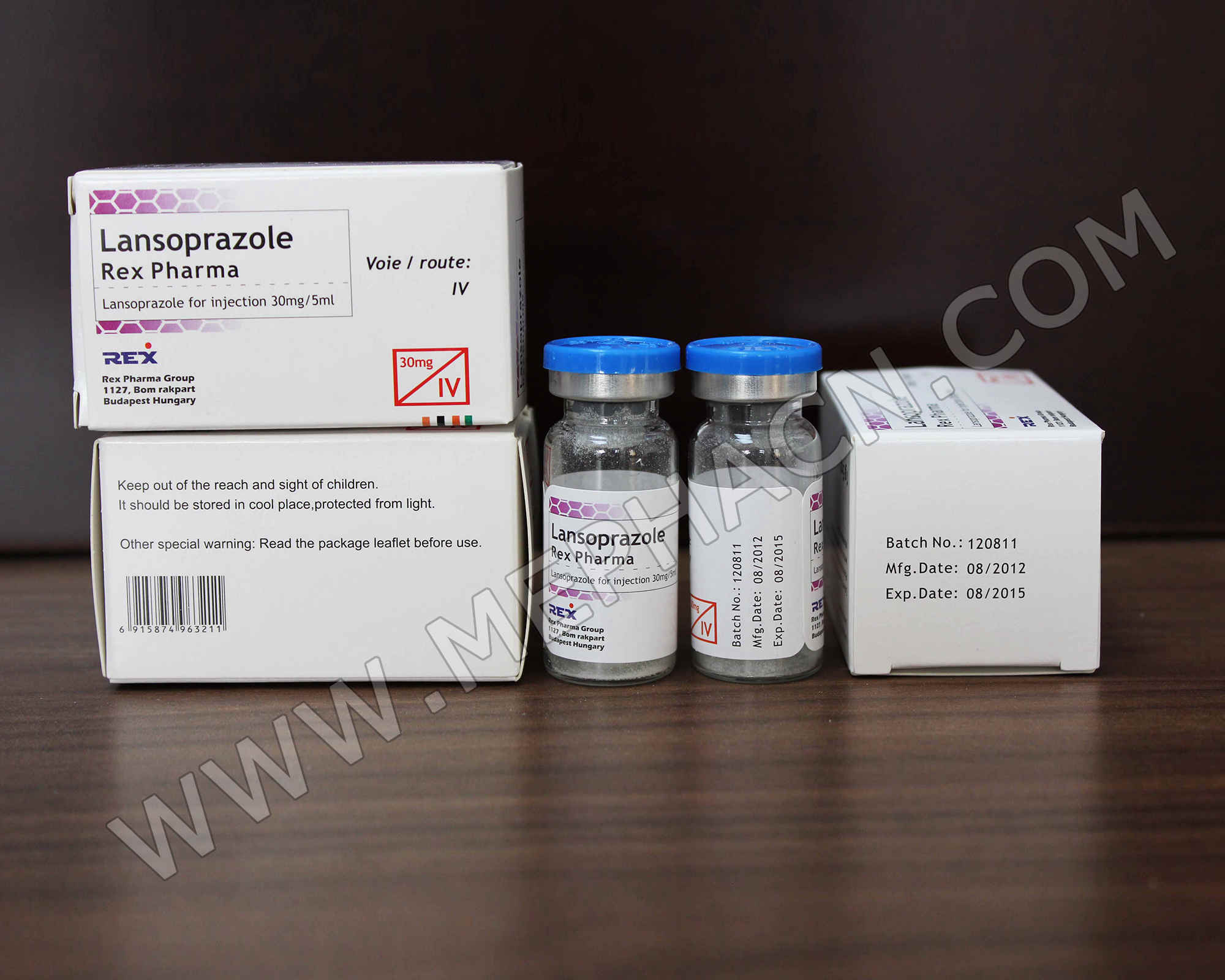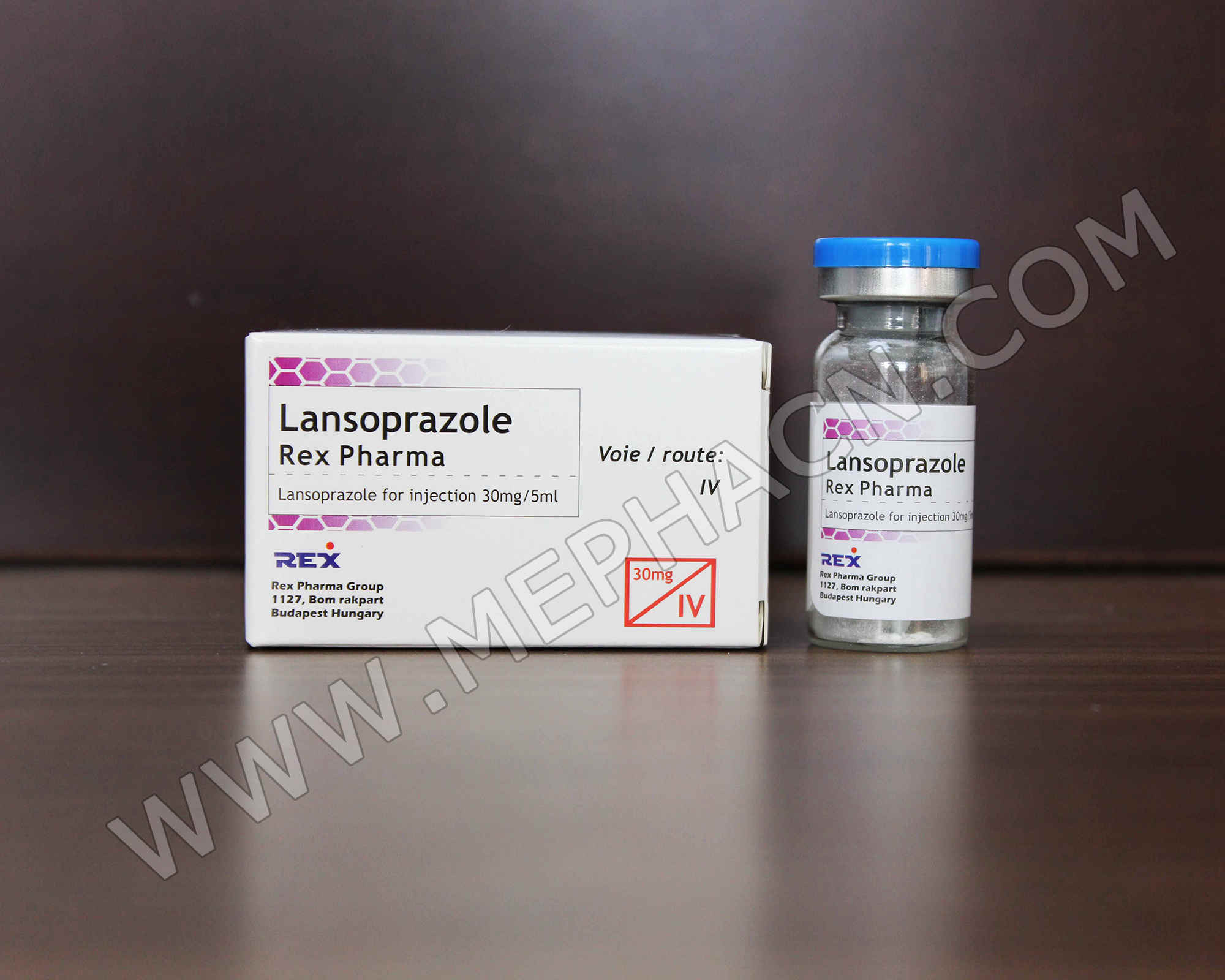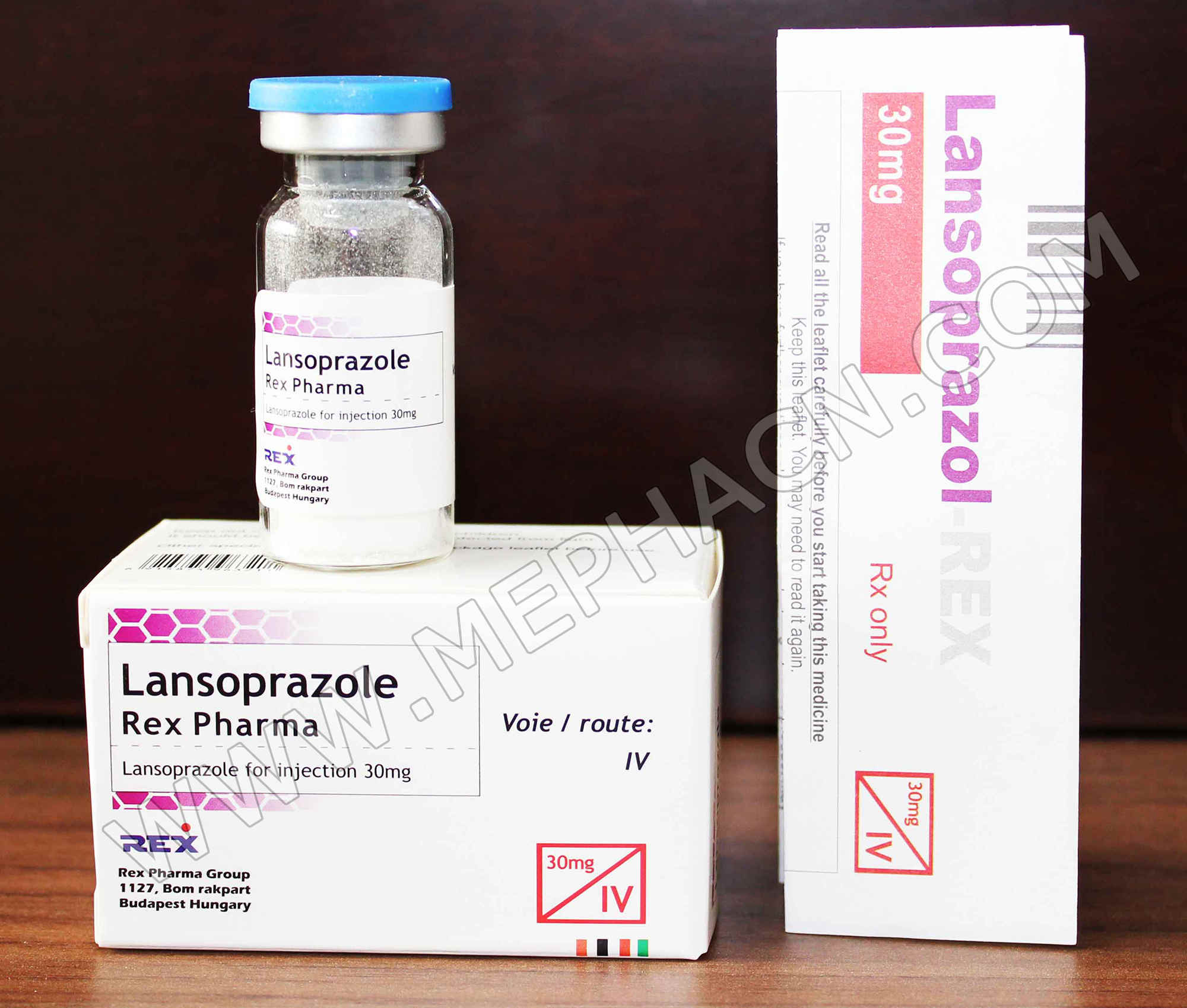Lansoprazole for injection 30mg
1. Product name: Lansoprazole for injection
2. Specification: 30mg
3. Package: 1 vial/box
4. Shelf life: 36 months
5. Registration dossiers are available.
If you are interested in our products,ple feel free to contact us.
1.What Lansoprazol for injection is and what it is used for
Lansoprazole is a white to brownish-white odorless crystalline powder which melts with decomposition at approximately 166.
Lansoprazole is used to treat acid-related throat problems (erosive esophagitis). It works by blocking acid production in the stomach. This medication is known as a proton pump inhibitor (PPI). Decreasing excess stomach acid can help relieve symptoms such as heartburn, difficulty swallowing, persistent cough, and trouble sleeping. It can also prevent serious acid damage to your digestive system (e.g., ulcers, cancer of the esophagus).
2.Before you have Lansoprazol for injection
Before using lansoprazole, tell your doctor or pharmacist if you are allergic to it; or to similar drugs (e.g., omeprazole, pantoprazole); or if you have any other allergies. This product may contain inactive ingredients, which can cause allergic reactions or other problems. Talk to your pharmacist for more details.
Before using this medication, tell your doctor or pharmacist your medical history, especially of: liver disease, other stomach problems (e.g., tumors).
Some symptoms may actually be signs of a more serious condition. Tell your doctor immediately if you have: heartburn combined with lightheadedness/sweating/dizziness, chest pain or shoulder/jaw pain (especially with trouble breathing), pain spreading to arms/neck/shoulders, unexplained weight loss.
3.How to have Lansoprazol for injection
This medication is given by injection into a vein over 30 minutes as directed by your doctor, usually once daily.
When you are able to take medicines by mouth, your doctor will switch your treatment to an oral form of this drug.
If needed, antacids may be taken along with this medication.
If you are giving this medication to yourself at home, learn all preparation and usage instructions from your health care professional. Before using, check this product visually for particles or discoloration. If either is present, do not use the liquid. Learn how to store and discard medical supplies safely.
Use this medication regularly in order to get the most benefit from it. Remember to use it at the same time each day. Continue to use this medication for the prescribed length of treatment even if you are feeling better.
Inform your doctor if your condition persists or worsens.
4.Possible side effects
Headache, constipation, diarrhea, nausea, or redness/swelling/pain at the injection site may occur. If any of these effects persist or worsen, notify your doctor or pharmacist promptly.Remember that your doctor has prescribed this medication because he or she has judged that the benefit to you is greater than the risk of side effects. Many people using this medication do not have serious side effects.Tell your doctor immediately if any of these unlikely but serious side effects occur: stomach pain.A serious allergic reaction to this drug is unlikely, but seek immediate medical attention if it occurs. Symptoms of a serious allergic reaction include: rash, itching/swelling (especially of the face/tongue/throat), dizziness, trouble breathing.This is not a complete list of possible side effects. If you notice other effects not listed above, contact your doctor or pharmacist
5.How to store Lansoprazol for injection
Keep out of the reach and sight of children.
Do not store Lansoprazol for injection above 30.
Do not use Lansoprazol for injection after the expiry date printed on the pack.
